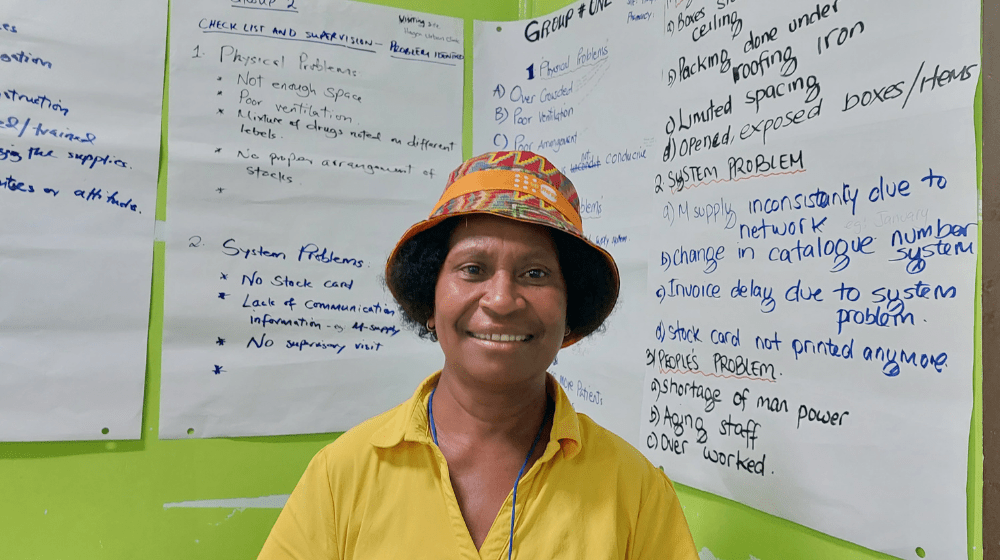“The main challenge we face in health facilities in Western Highlands is the shortage of contraceptives and other essential medicines,” says Nellie Newman, Provincial Family Health Coordinator for Western Highlands. “These shortages affect the quality of health care.”
Nellie has been working in the industry for 15 years and is familiar with the impact that shortages of essential medicines has for patients and practicioners. She is one of several health care workers from the Highlands Region who joined a week-long workshop on Reproductive Health Commodity Security (RHCS) in Mt Hagen, facilitated by UNFPA.
“Prior to this training, I was always blaming others for not procuring enough medicine,” shares Nellie. “As a result of this training, I have learned that the issue is not just about a shortage of supplies. The problem lies with poor management of supplies at all levels, beginning at health facilities and through to national levels.”
This supply chain management training invites health care workers responsible for the ordering and storage of reproductive health medicines to improve their awareness of supply management tools and strategies. The sessions strengthen the effective provision of medicines from national and provincial distribution centres to health care facilities and improve storage and issue of medicines at the facility level.
The goal of this training is to ensure the stock available at health facilities is sufficient for the number of clients served by each facility.
Importantly, health workers are trained in utilising detailed stock cards to track the demand for certain medicines and services, to anticipate potential stock-outs, and place orders for re-stocks in time to prevent these stock-outs.
“In this training I have learned the importance of the stock card for management of the supply of medicines.”
The training also deals with information on medicine storage. Ordering too much a given medicine, or storing it incorrectly, can lead to medicines being thrown out. Improving stock controls helps reduce this wastage. One issue that has repeatedly been identified is the incorrect storage of oxytocin. This is an essential medicine for midwives and can help prevent maternal deaths, but it is often stored at room temperature, rather than in the fridge as it should be.
“I will follow up with this issue in the province and will make sure that all health facilities keep this lifesaving medicine in cold chain storage.”
This is not the only information that Nellie will be taking back to her team, with plans to expand supply chain management funding for all facility staff.
“Following this training I intend to prepare a training plan and mobilise funding to provide on-the-job training on RHCS for our facility staff in order to reduce stock-outs of lifesaving commodities.”


